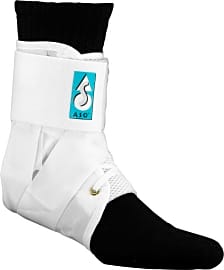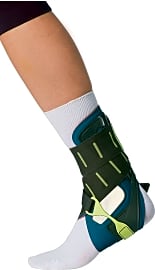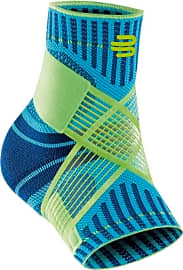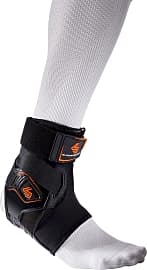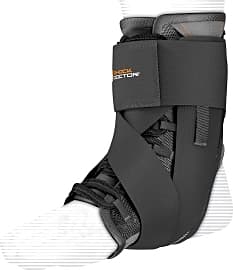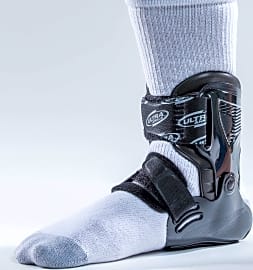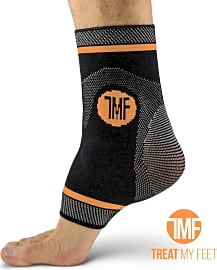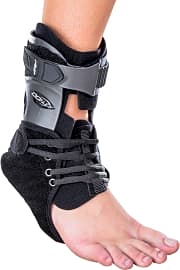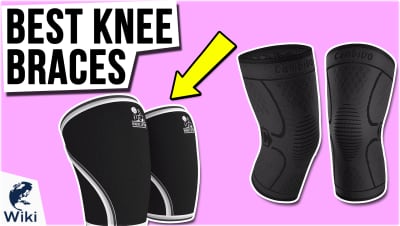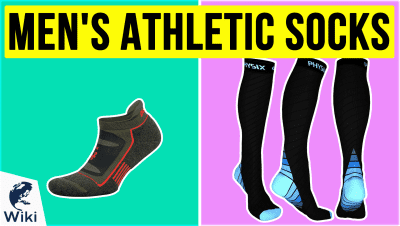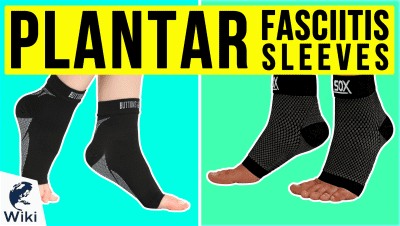The 10 Best Ankle Braces

This wiki has been updated 39 times since it was first published in April of 2015. Whether you need a little support to let you go about your day, or you require near-immobile control to enable proper healing, one of these ankle braces will help you get back on both feet as quickly as possible. Here are some basic prevention designs as well as high-tech gear designed for athletes who need to continue training. Make sure to consult your doctor before using any medical devices. When users buy our independently chosen editorial choices, we may earn commissions to help fund the Wiki.
Editor's Notes
April 03, 2020:
First of all, it's of prime importance that you speak with your doctor or other qualified medical professional before using any medical equipment. Using the wrong brace can not only impede the healing process, it can even set your progress back and cause re-injury. So, only use any of these in direct accordance with instruction from your doctor or orthopaedist.
Once you're certain you're cleared to wear a brace, there are two different reasons to use one. Prevention is a necessity for those with genetic or developmental joint issues and especially for anyone who's undergone injury in the past and has already gone through a recovery period. The Treat My Feet Support is just about the simplest compression brace that promises to still be effective, while the Bauerfeind Sports is both more significant and more expensive. The OPED Vacotalus, on the other hand, may be one of most well-engineered low-profile options. It's constructed out of high-end materials that offer support, flexibility, and airflow all in the same package, making it a good choice for everyday athletic use.
Alternately, a doctor or physical therapist may instruct you to use a more substantial brace after an injury or after finally removing a cast or walking boot. In this case, the Med Spec ASO Stabilizer is a pretty straightforward yet highly effective choice thanks to its laces, figure-6 velcro strap, and 8 available sizes, which together allow it to accommodate nearly anyone's feet. The Shock Doctor 851 is designed pretty closely to it. The Zamst A2-DX is similarly effective and easy to use, while the Shock Doctor 2055 is comparable but receives some reports of being difficult to use. However, if you pay careful attention to the directions, you should be able to figure it out.
The DonJoy Velocity ES is intended specifically for upper ankle injuries, which you can tell partially from its rugged upper fastener. In contrast, the Ultra Ankle Zoom features a solid hinge that limits range of motion but can greatly aid in the healing process and prevent some chronic pain down the road.
Special Honors
Tayco External Ankle Brace If you've undergone major trauma and are trying to gain mobility, but still need a significant level of support, an external brace may be your best bet. They won't work with all shoes, and you'll need to go through a custom measurement and fitting process, but the right one can help you return to some semblance of a normal life. taycobrace.com
Earthwalk Orthotics While you will have to act with recommendations and probably custom measurements from your doctor, Earthwalk can supply a number of high-end ankle foot orthoses ranging from solid-hinged braces to durable immobilizers. Among their specialties are designs meant specifically for patients with drop foot and chronic tibial tendon dysfunction. earthwalkorthotics.com
Egg-cited To Get Better
The mixture set like cement, and worked as a great makeshift cast, but it was awfully fragile and it attracted ants in the summertime.
I used to roll my ankles like it was going out of style. I twisted ankles while hiking, playing ice hockey, running sprints, and doing a dozen other activities associated with athletics and childish fancy. The worst roll, however, the sprain that sidelined me for nearly two months, was much more embarrassing.
Having just hit a solid single into the outfield during a no-stakes game of pick-up softball, I somehow managed to roll my ankle overrunning first base. I was already safe, and all I had to do was stop running, but I took a few extra little steps, thrilled as I was with my base hit. That's when I rolled it over, and I was done for.
Before this sprain, whenever I rolled an ankle, my Nana would often make a simple cast out of gauze that she would briefly soak in a whipped combination of egg whites and sugar. The mixture set like cement, and worked as a great makeshift cast, but it was awfully fragile and it attracted ants in the summertime.
With this new, more intense injury, I finally sought relief from a legitimate ankle brace. I knew I needed something that would keep my ankle still and protect it from banging about, but I didn't know much more than that.
An ankle brace essentially does what any medical brace does, which is to provide support and compression, but–most importantly–it helps to keep your injured ankle still, so that it can heal faster and more completely. Without all three of these components, it’s likely that even everyday activities can cause slight to severe reinjuries, building up scar tissue and preventing a complete recovery.
Designed For Your Diagnosis
The market has no shortage of brace options for any body part. Injure a wrist or an ankle and in one trip to the pharmacy you could see a dozen different braces at your disposal, without one really seeming superior to another, except perhaps in packaging or price.
Over the years, and after dozens of ankle sprains, I got to the point where I could diagnose the specific injury pretty well, but it’s a good idea to consult with your physician before picking up a brace, unless you already know the kind of injury you’ve suffered. Wearing the wrong brace for your specific sprain will only slow you down.
Ankle braces that can be tightened with Velcro or other straps, and braces with hard shells will help the most in a more severe sprain situation.
If your pain is located primarily below the balls of your ankle (the lateral and medial malleoli), you likely have a lower ankle sprain. The braces that reach down below your ankle and add support to the foot are ideal in this case. Pain located higher than this, or pain shooting up the leg from above the malleoli usually indicates a high ankle sprain, and braces designed for this are most appropriate.
The other important factor to consider is the severity of the injury. The worse it is, the less movement and more protection you want. Ankle braces that can be tightened with Velcro or other straps, and braces with hard shells will help the most in a more severe sprain situation.
One of the braces on our list has silver thread woven throughout it, which is supposed to help with odors. I know that I’ve had to replace some ankle braces from my past for the funk and the funk alone, it was so powerful, so this is especially useful if your brace makes your feet sweat.
Finally, if you know that you’re skin is sensitive to certain materials, you can look for an ankle brace that is latex-free, or that adheres to whichever material specificity you require for comfort. One of the braces on our list even has a little aloe vera treatment built into it, so you can have constant relief even after hours of use.
An Ancient Egyptian's Second Opinion
Back in the 1860s, a renowned Egyptologist by the name of Edwin Smith discovered, among other things, a papyrus text that appeared to be medical in nature. Once translated, the text turned out to be a chronicling of moderate to sever injuries of the human body and recommended treatments for each.
One wonders what the young scholar found more important than finishing his homework.
A young medical scholar who presumably copied it from an original source wrote the text in roughly 1600 BCE. It starts with injuries to the head and makes its way down the body accordingly, but unfortunately it stops well before the ankles, cutting off instead somewhere around the mid-torso. One wonders what the young scholar found more important than finishing his homework. Perhaps a sandstorm swept on by, or maybe one of those plagues that were all the rage in Egypt back then.
Whatever caused the scholar to stop, the papyrus still manages to recommend braces in the setting of bones and as a treatment for sprains. It would seem that knowledge of a brace’s usefulness extends back at least that far in human history, and with the exception of an advancement in materials and shaping to accommodate the specific anatomy of the ankle, the design really hasn’t changed that much.


